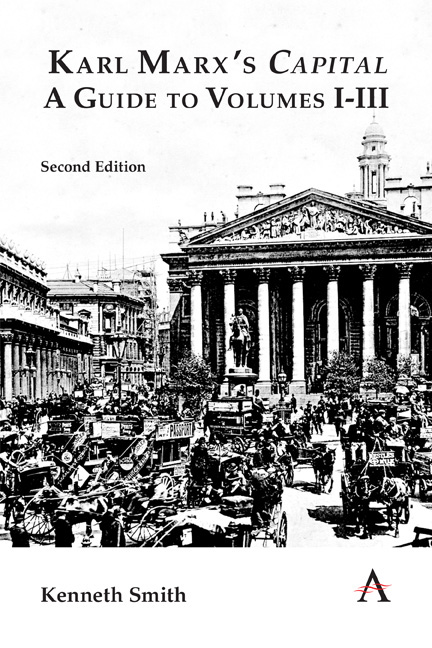Book contents
- Frontmatter
- Dedication
- Contents
- Preface to the Second Edition
- Introduction
- Part I The Development of the Capitalist Mode of Production
- Part II The Capitalist Mode of Production
- Part III The Underdevelopment of the Capitalist Mode of Production
- Part IV The Value Theory of Labour
- Conclusion to Part IV
- Conclusion
- Appendix: On Social Classes
- Notes
- Bibliography
- Index
14 - The Tendency of the Rate of Profit to Fall in Capital, Vol. III, Parts I–III, Ch. 1–15, but especially Ch. 14–15
Published online by Cambridge University Press: 17 April 2021
- Frontmatter
- Dedication
- Contents
- Preface to the Second Edition
- Introduction
- Part I The Development of the Capitalist Mode of Production
- Part II The Capitalist Mode of Production
- Part III The Underdevelopment of the Capitalist Mode of Production
- Part IV The Value Theory of Labour
- Conclusion to Part IV
- Conclusion
- Appendix: On Social Classes
- Notes
- Bibliography
- Index
Summary
Marx's interest in the question of the tendency of the rate of profit to fall has sometimes been discussed by Marxists in connection with Marx's writings on colonialism and, in particular, with the possibility of establishing a Marxist theory of imperialism. For this reason, it seems appropriate here to look at what Marx has to say on this subject in that part of Capital, Vol. III which we have yet to look at in any detail at all: the approximately 250 pages which make up the first three parts of Vol. III (Ch. 1–15; 1977, 25–266 [1981, 117– 375]), and especially Chapters 14–15. The reason that this otherwise rather uninteresting discussion is sometimes thought to provide the basis for a Marxist theory of imperialism is because of Marx's observation that there is generally a higher rate of profit to be found in colonial rather than non-colonial trade (Ch. 14, section 5, ‘Foreign Trade’; 1977, 237–9 [1981, 344–6]). Once again, however, this is something of a misrepresentation of Marx's actual view of this matter. Marx's interest in the question of a falling rate of profit, like that of the classical political economists before him, had nothing very much to do with establishing a possible theory of colonialism-imperialism, but was solely concerned with the implications of the tendency of the rate of profit to fall on the development of the capitalist mode of production itself, and in particular, to the question of the finitude of the CMP. However, whereas Adam Smith and David Ricardo sought to understand the tendency of a falling rate of profit in order to overcome the threat that it posed to the capitalist mode of production, Marx was interested in the opposite problem; namely, why the fall in the rate of profit was not very much greater and more rapid than it actually was, given that there was any such thing as a falling rate of profit at all, and how this might help to bring about an end to the CMP (1977, 232 [1981, 339]). In order to answer these questions Marx undertook a detailed study of the counterbalancing forces that offset an actual fall in the rate of profit.
- Type
- Chapter
- Information
- Karl Marx's 'Capital': A Guide to Volumes I-III , pp. 111 - 117Publisher: Anthem PressPrint publication year: 2021



